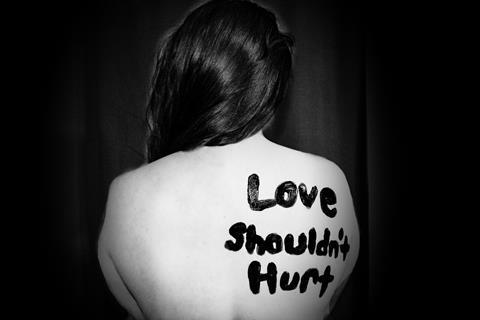Dr Ava Kanyeredzi has co-authored a new study on attitudes toward domestic abuse in Black majority churches. Her research suggests some churches tend to protect the abuser rather than the victim

One in four women will experience domestic abuse in their lifetime - and Christian women are not exempt.
My colleague Dr Joanne Wilson and I interviewed 35 survivors for the ‘Spirit and Solace’ project, funded by a BA/Levenshulme Small Research Grant. Victims often reported that perpetrators of abuse in church settings are protected, especially if they were members of a church leadership team.
One person commented: “The church is a powerful institution where most believers value the voices of the leaders. The pulpit has been used to intimidate, harass, enable, justify abuse while perpetrators have been empowered and victims blamed and condemned. When the congregation is aware the leaders are not enablers, victims and potential victims will be reassured the church is a safe place and perpetrators will be aware the church is not a place to hide.”
The pulpit has been used to intimidate, harass, enable, justify abuse
Respondents to our survey said it was the responsibility of church leaders to manage and lead on domestic abuse. When church leaders address domestic abuse in sermons, more survivors are likely to report abuse to church leadership teams.
The leaders of Black majority churches need to identify and understand domestic abuse and its racial and cultural relevance to them. Silence cannot be an option.
One respondent shared the difference that was made when their pastor spoke publicly about domestic abuse and violence. She said, “I think people felt they could respond because it was actually being preached from the pulpit, which I thought was a good thing.”
Another commented, “When it comes from the pulpit, it has more power; absolutely…I just can’t imagine …when things are not openly spoken about, for example, from the pulpit…it doesn’t have that residue that comes all the way down for people to feel that freedom to discuss it.”
Respondents weren’t too concerned whether the pastor spoke from personal experience or used case studies. One shared, “It doesn’t have to be somebody in our church’s experience…but people who are like us. Black women. Black men…I would love it for our church to have these conversations.”
There is a tendency in Black majority churches to protect the abuser when they are a church leader. Trying to protect marriage without clarifying the unacceptability of domestic abuse, can lead to ineffective and dangerous teaching. “If it is a minister, it is even harder, because his marriage is supposed to be the one that we all look to,” one person said.
When I was going through domestic abuse in my marriage the church made me feel worse
“With a lot of church leaders…I think it’s about their inability to deal with things like domestic violence, because for them, it’s not supposed to happen. So in the ideal marriages, husbands don’t beat wives, wives don’t beat husbands….[Church leaders] don’t know what to do [when abuse does occur].”
One respondent who was married to a leader shared, “When I was going through domestic abuse in my marriage the church was not there for me, they made me feel worse and I found no support as some of the saints took sides.” Another shared, “We started to hear from other people, other couples, in situations where it has been similar, the favour is always towards the man. They want the woman to stay basically and put up with it.… Very misogynistic.”
What also influences this cover-up is some leaders’ fear of tarnishing the reputation of their church. "I think that there [are] pride issues. There [are] reputational issues…if you’re then seen to be not good at what you are doing…you can’t let it out. You gotta be, keep it schtum because outsiders will say: I don’t want to go to this church, because they’ve got issues…you’ve gotta keep hold of it and keep it hush-hush.”
We hope our findings will encourage greater discussion about domestic abuse and violence in Black majority churches and that more will be done to support victims in these environments.
See here for more from Dr Ava Kanyeredzi & Dr Joanne Wilson on their research findings
For more information see the Black Church Domestic Abuse Forum. Dr Ava will be speaking at the Forum's seminar on The Law, Domestic Abuse and the Church later this year.


































No comments yet